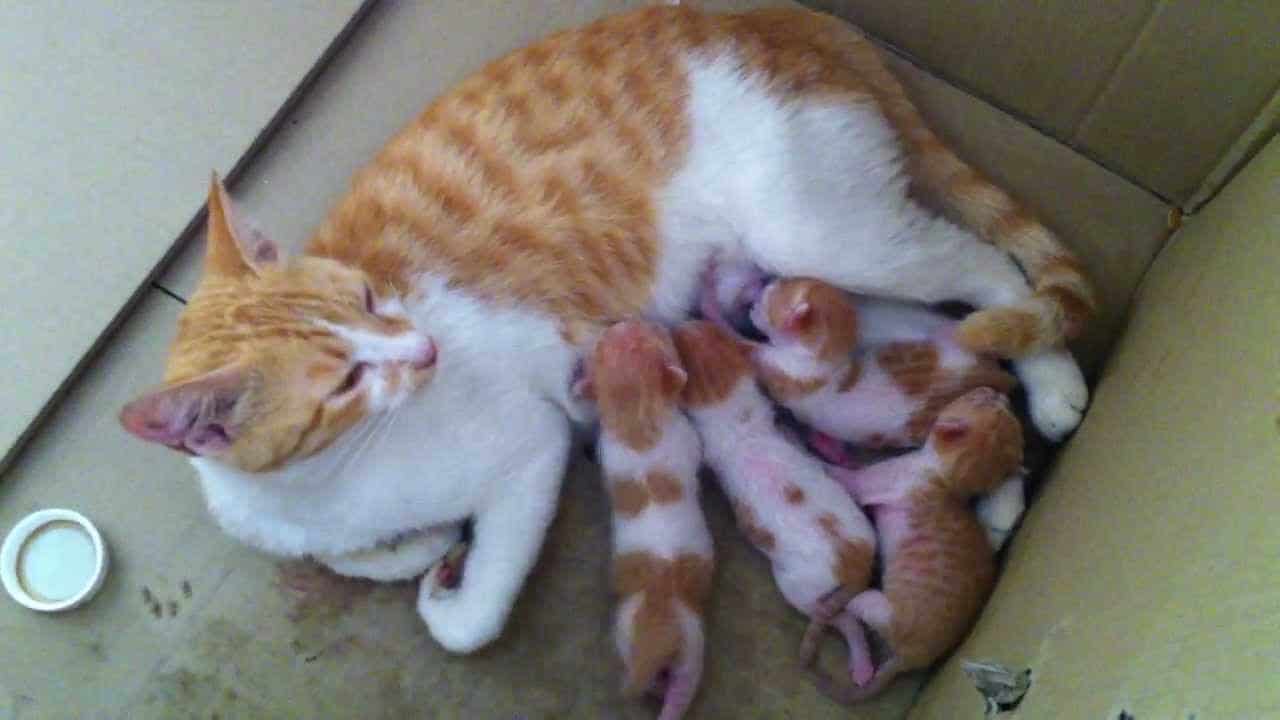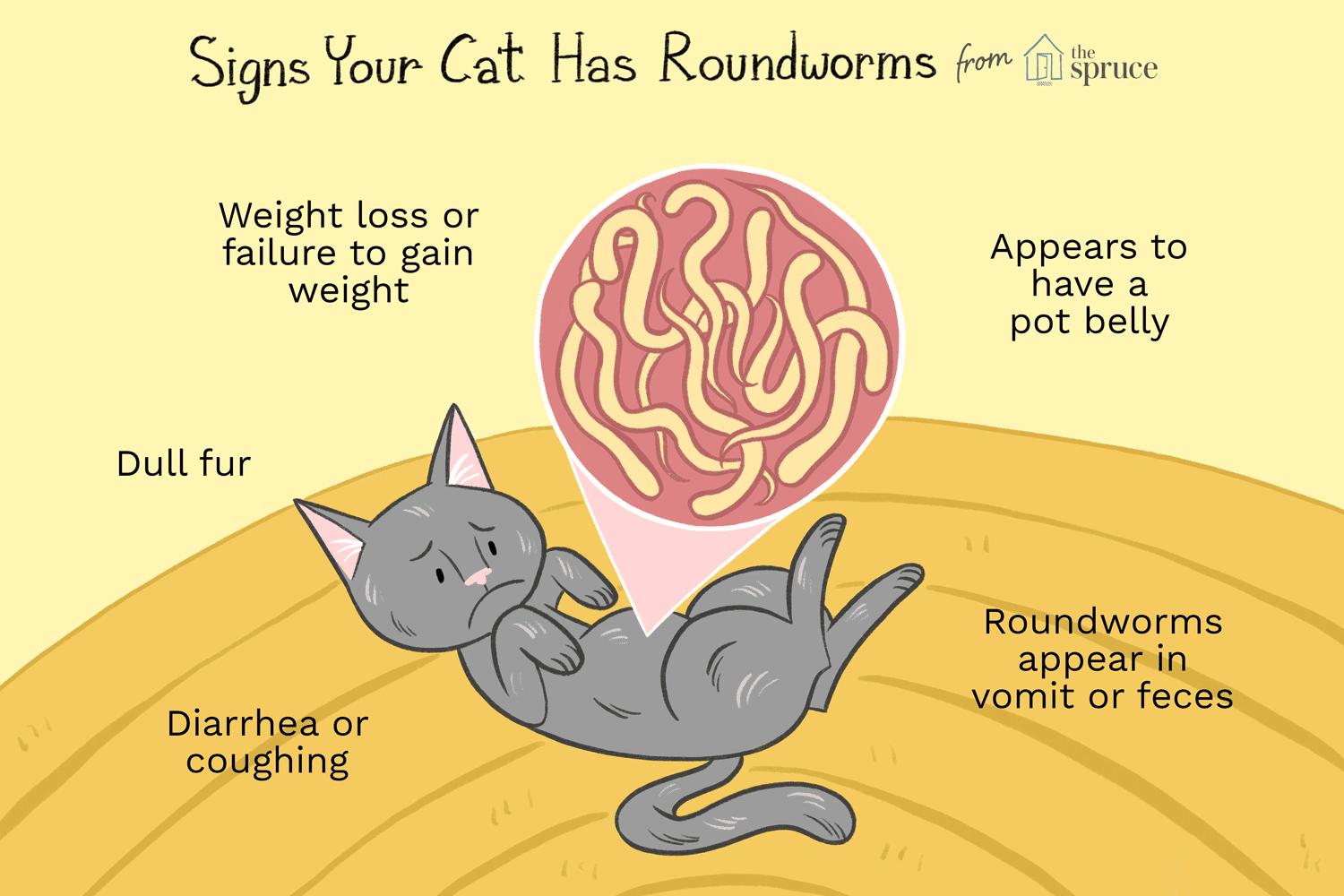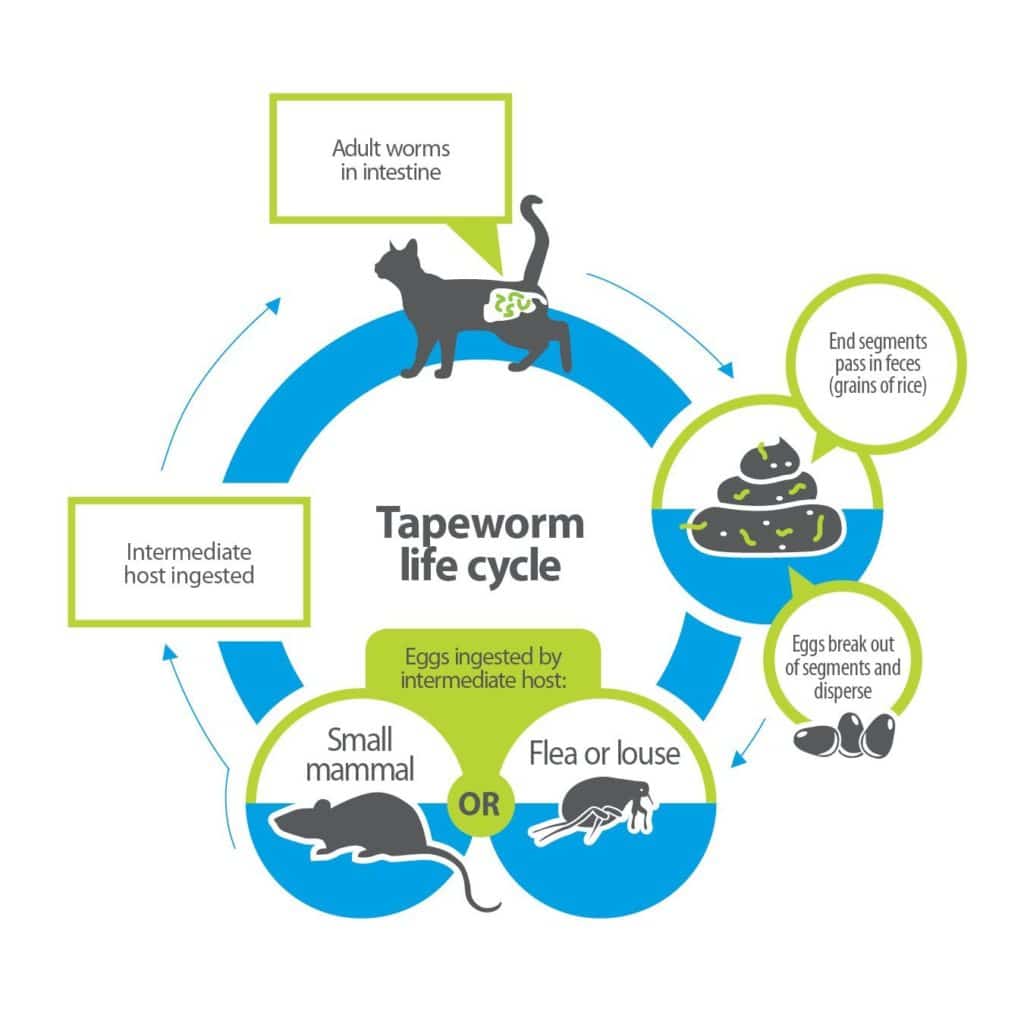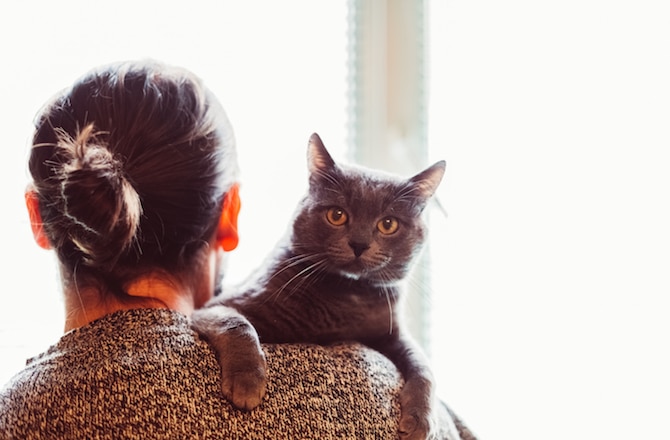- Roundworms
- Tapeworms
- Hookworms
- Lungworms
- Bayer Tapeworm Dewormer contains praziquantel and is available OTC. Customer reviews report a few side effects. The medication comes in tablet form and can be crumbled up and mixed with wet food if your cat rebels against swallowing a pill whole. Bayer Tapeworm Dewormer is only for use in cats over six weeks of age.
- Bayer Drontal Broad Spectrum Dewormer is a broad spectrum dewormer so it can be used to treat roundworms, hookworms, and tapeworms. It contains praziquantel and pyrantel pamoate an is available OTC. The medication is in tablet form and is for cats over four weeks of age and 1.5 pounds.
- Pro-Sense Liquid Cat Dewormer is used to treat roundworms in cats. The active ingredient is piperazine base as piperazine citrate. Pro-Sense Liquid Cat Dewormer is a liquid, duh and is safe for cats and kittens six weeks of age and over.
- Panacur is used to treat lungworms in cats and is available OTC. It can also be used to treat roundworms, some types of tapeworms and hookworms. The active ingredient is fenbendazole. Panacur is available both in liquid and tablet form and is safe for cats as young as two weeks old. Panacur comes in tablets and a powder which is mixed with wet food.
Eeeew, worms! Of all the stuff that can happen to a cat, having worms is one of the most skin crawling. But worms are indeed not the worst if treated with cat dewormer.
Unlike a lot of things that can make a cat sick, worms can actually make us pet owners sick too. They are definitely nothing to ignore. And if you’re sick, who will cater to kitty’s every whim and more importantly, clean the cat litter box!?
You might think you and your cat are exempt if you give them preventative treatment for heartworms. Not so. Because there are several types of worms, heartworm treatment doesn’t mean your cat is immune from a different type of worm.
Sadly, worms in cats are not uncommon. If you have a kitty friend you’re probably going to be dealing with them. While there are several different types of worms and they can be hard for pet owners to diagnose, most cases of worms in cats are easy to treat.
While you may have to spend money on a vet visit to get a diagnosis for your cat’s worms, you can buy the medication to treat them over the counter (and over the internet) and relatively inexpensively.
So put your gag reflex on pause and let’s delve into the world of cat worms and cat dewormer.
How Do Cats Get Worms?
How your cat acquired worms depend on the type of worm acquired. Usually, they come from eggs or infected particles in poo (the technical term!). When outdoor cats hunt and eat prey infected with worm larvae, the larvae grow into worms in the cat’s digestive system.
In some cases, a cat becomes infected when they eat fleas carrying worm eggs or are bitten by the worm larvae.
When your cat steps in infected poo and then ingests it while giving themselves a bath, boom! Worms. Kittens can also contract some types of roundworms while nursing if their mommy is infected.
This begs the question. If your kitty is an indoor kitty, not running around outside nomming on mice, do you need to deworm them? Yes, you do.
Keeping your cat indoors can go a long way towards making sure they live a long, healthy life.
Allowing cats outdoors increases their risk of being injured and exposed to infectious diseases such as feline leukemia virus (FeLV) and feline immunodeficiency virus (FIV). Outdoor cats also can get wounded in fights with other animals, hit by cars, or killed when they inadvertently drink poisons such as antifreeze.
But indoor cats are still at risk for a few different types of worms including tapeworms and roundworms. Tapeworm eggs and roundworms are transmitted by eating infected rodents. And houses sometimes have rodents like mice.
Roundworm eggs can be brought into the house on our shoes and even clothes, so even indoor cats aren’t immune. All the more reason to implement a “No shoes in the house” rule now if you haven’t.
Most Common Types of Worms
While there are several other types of worms, these are the ones the most common for cats.
Roundworms first infest the cat’s large and small intestines but can spread to other organs including the liver and lungs via the bloodstream. Pet parents can catch roundworm from their infected cat.
Common signs of adult roundworm include vomiting, diarrhea, constipation, a decrease in appetite, and a dulled coat. You might see worms (they look like angel hair pasta, low carb it is!) in your kitty’s poo or vomit.
If you have a kitten with roundworm, their little tummy might look distended and feel hard and solid while the rest of them looks very thin. If you’ve seen photos of very poorly nourished children in developing countries, it looks similar.
Tapeworms mostly affect a cat’s intestines and can lead to cestodiasis. Symptoms include itchy butt so if your cat is scooching its butt across the rug; this may be the reason.
For the same reason, the cat might lick and paw at its butt. You may see what looks like sesame seeds (okay, now tahini is out) around your cat’s feces and butt. These are tapeworm segments. Here is what the life cycle of a worm looks like.
Hookworms live in a cat’s intestine, sucking blood which can cause inflammation, intestinal bleeding, and anemia. Symptoms include sores around the jelly bean toes (paw pads), dark, tar-like poo, diarrhea, constipation, lack of appetite and pale looking nose, lips, and ear tips.
If the worms enter a cat’s lungs via the bloodstream, cats can develop a cough. Hookworms are especially dangerous to kittens and can cause sudden death if left untreated.
The clue is in the name; lungworms live in a cat’s lungs. Symptoms include breathing difficulties, coughing, wheezing, shortness of breath and fluid in the lungs.
Treating Worms in Cats
Fortunately treating worms in adult cats and kittens isn’t difficult. If you’ve been unable to tell the type of worms your cat has, the vet will diagnose them generally by looking at a poo or vomit sample. Yes, you’ll need to collect it. Sorry. Stool sample is the only way.
Intestinal worms or intestinal parasites can be treated with cat dewormer, an oral medication that kills both fully grown and parasitic larval worms. You can find both over the counter dewormers and prescription only dewormers. You can get liquid dewormer, great for kitties who are reluctant to swallow pills, and dewormer tablets.
The typical active ingredient in most deworming medication can include pyrantel pamoate, piperazine citrate, and praziquantel.
After treatment, your cat may suffer from diarrhea and vomiting. But these are usual side effects common after deworming medication.
How Often to Deworm Cats
Unfortunately, deworming treatments aren’t a one-time thing. Because worms are so common in kittens, they should be dewormed for roundworms every two weeks from six weeks of age until they reach three months and then every month until they reach six months old.
Kittens over six months and adult cats should be treated for roundworms and tapeworms every three months.
You might think if your cat isn’t showing any symptoms of a worm infestation that it’s okay to skip treatment, but because some infections are asymptomatic and because humans can contract some types of worms, it’s important to be proactive.
Best Dewormers
Not all cat dewormer medications work on all the different types of worms, so it’s essential to have a proper diagnosis for your cat and to administer the correct medication.
Natural Cat Deworming
If you’re the crunch, granola type of pet mom or dad, you might prefer to treat your cat’s worms naturally without pharmaceuticals. You do have some choices but should always consult your veterinarian before making any decisions.
I have a very low opinion of big pharma, but sometimes a health situation requires medication whether we’re talking about cats or ourselves.
HomeoPet makes a product called Feline WRM Clear and is a drug-free approach to treating worms for cats who might suffer severe side effects from pharmaceutical treatments.
Feline WRM Clear may treat roundworms, tapeworms, hookworms, threadworms, whipworms, and flukeworms. The product does not kill the worms but creates an inhospitable environment for them, so they flush themselves from the cat’s body.
It can take up to two weeks for Feline WRM Clear to work fully. The effects of the treatment can last up to two months after the final treatment which will help prevent a re-infestation. It’s safe for kittens, even those weighing under one pound.
Mixing two teaspoons of food grade diatomaceous earth into your cat’s wet food twice a day for 30 days can help eliminate worms. Also sprinkling diatomaceous earth over your cat’s food once a week may help kill the fleas that transmit worms to cats.
Adding one teaspoon of finely ground pumpkin seeds which are thought to be anti-parasitic to your cat’s food each day may help kill worms.
Part of Being a Cat Owner
We know reading this was gross! Writing it was gross! I think I lost a few pounds because every time I thought about eating, the yucky images I saw while researching this article popped into my head. Who knew your cat having worms would be your secret to weight loss!
Time spent with cats is never wasted.
But not all parts of pet parenthood are pleasant and while dealing with worms is gross, they aren’t hard to treat and when treated properly, don’t pose a serious danger to the life and your cat’s health.






